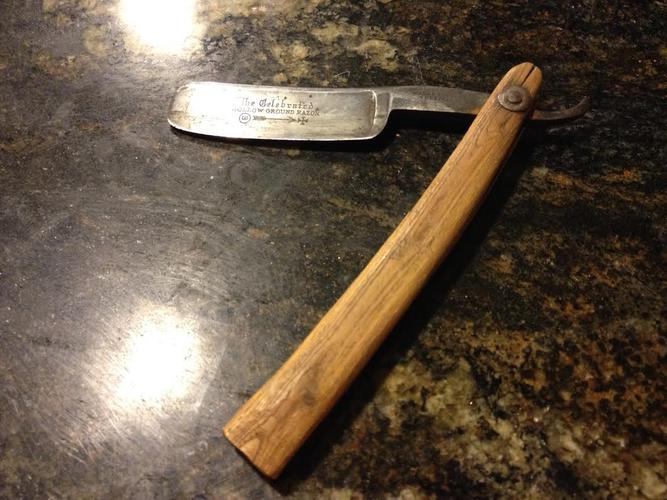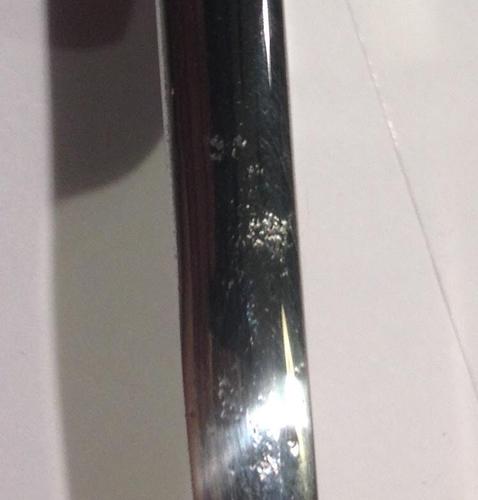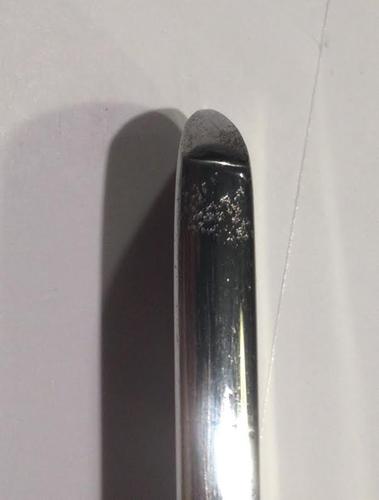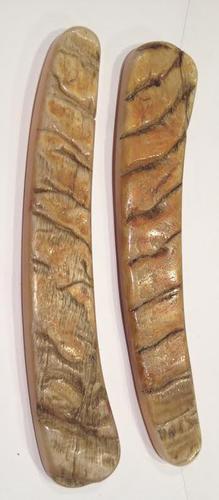Results 1 to 4 of 4
Thread: Another W&B restore.
-
11-10-2015, 04:19 AM #1
 Another W&B restore.
Another W&B restore.
Found this on the Bay.

The scales were actually split on the pivot end. Story goes it was a WW1 trench repair. Was really contemplating keeping it that way until the obvious split. So I unpinned it, washed it with soap and water. Hit it with 3000 grit sand paper by hand and ended up with this. I might need to tighten the pivot hole just a bit.

These are the only spots of deep crust that I couldnt smooth over without getting aggressive with the grit and removing a lot more metal. Since they are on the spine Im going to leave them there since they are well earned.


I like the look of natural horn on razors and these scales were calling my name. Only problem is that they are 1/4 inch thick. Not 1/8 or 3/8 that is suggested for larger razors. Is there going to be an issue with them being 1/4 inch thick that I am unaware of? Should I sand them down to 3/8 or leave them alone and go for it? I like the big and chunky look on razors which is a little out of the norm for most people. And this definitely fits that look when they are together.
 "The production of to many usefull things results in too many useless people."
"The production of to many usefull things results in too many useless people."
Karl Marx
-
11-10-2015, 05:09 AM #2Senior Member




- Join Date
- Feb 2013
- Location
- Haida Gwaii, British Columbia, Canada
- Posts
- 14,456
Thanked: 4830
It will not handle well with scales that thick. They need to be thinned a lot. I am not sure that you would want them any thicker than 1/8. The pattern on the outside is pretty slick, so be sure to take the thickness off of the back. The blade is looking good, no point in taking any more metal than you need to.
It's not what you know, it's who you take fishing!
-
11-10-2015, 05:12 AM #3

I have never gotten satisfactory results with rams horn personally so my experience with it is limited.It can be tricky to thin consistently due to the varied depth of the surface convolutions. Too thick and they will not flex properly if using a tapered wedge but get them too thin and they may snap. You could thin them down and use a G10 or brass liner for strength or keep them thicker and use a spacer rather than a wedge. Hopefully someone with more experience with this particular material can offer more sage advice. Don't concern yourself with the pivot hole, back in the day they were all punched out rather oversized.
"It is easier keeping a razor honed than honing a razor."
-
11-10-2015, 08:31 AM #4

Definitely thinning from the back side. The surface texture is what Im after. I read in the Library here that 3/8 was used on larger blades. I might thin down to that and see. The fronts are relatively smooth and even with the exceptions of the growth lines. Even just temporarily pinching them together. At 1/4 inch each slab, it makes for a massively wide weapon to wield around ones face.
I was wondering if the wedge would put to much pressure on the growth grooves causing them to fail and snap. Do you think I should stick to flat wedge instead of a traditional wedge?"The production of to many usefull things results in too many useless people."
Karl Marx


 3Likes
3Likes LinkBack URL
LinkBack URL About LinkBacks
About LinkBacks






 Reply With Quote
Reply With Quote
